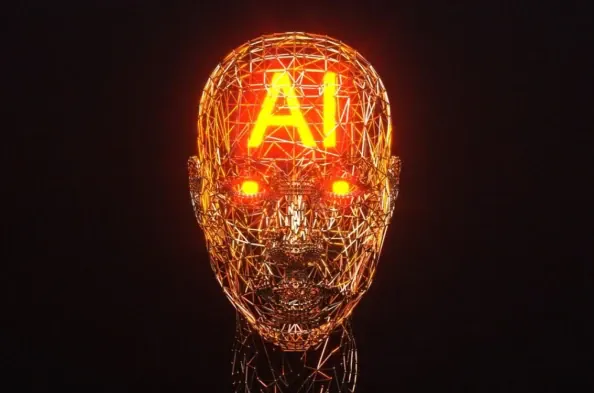Artificial Intelligence (AI) technology has often been scrutinized for its errors, with a common belief that these failures need rectification. However, an emerging perspective suggests that these mistakes, if embraced, could lead to new insights. This market analysis explores the value of AI errors, offering a fresh narrative on their potential for driving innovation.
Understanding AI Mistakes and Their Significance
AI systems, like humans, are prone to errors, but these errors manifest in unique ways. While human mistakes often stem from fatigue, stress, or lack of knowledge, AI mistakes seem independent of such factors. The unpredictability of AI’s errors could reveal insights into human cognition and challenge our assumptions about intelligence. For instance, AI errors that favor familiar names over unknown ones or display sensitivity to phrasing might mirror human cognitive biases. These parallels offer a new lens to understand both human and machine cognition.
Leveraging AI Errors for Strategic Uses
Challenging Assumptions and Uncovering Biases
By inducing deliberate AI errors, we can challenge existing assumptions and uncover hidden biases, particularly in fields like policy-making or corporate strategy. These mistakes can provoke critical thinking and foster deeper analysis, leading to the refinement of strategies and innovative solutions. For example, the strategic use of AI errors can help policymakers identify and address biases within their proposals.
Enhancing Cybersecurity Measures
AI errors can also play a crucial role in enhancing cybersecurity. By studying these mistakes, developers can uncover the types of attacks that are most effective against AI systems. Understanding how adversaries might manipulate AI with flawed data can help create advanced threat detection mechanisms. Transforming AI weaknesses into robust security measures can significantly bolster defenses.
Stimulating Creativity and Innovation
In creative industries, AI’s lack of common sense can be a source of inspiration. AI-generated errors in art, music, and other fields can lead to novel forms and ideas that humans may not readily conceive. Utilizing AI’s quirks can break conventional thinking patterns and foster innovative approaches in creative problem-solving.
Detection and Mitigation of Bias
AI mistakes can also highlight biases within training data. For instance, if an AI consistently makes incorrect assumptions about specific demographics, it may indicate systemic biases in human judgment. Addressing these biases can lead to more equitable and accurate AI models, enhancing their reliability and fairness.
Projecting Future Trends and Developments
AI Systems Designed for Error Analysis
Emerging trends include the development of AI systems specifically designed to produce errors for educational and research purposes. This shift aims to create more transparent AI, where error patterns are easily traceable and explorable. Such advancements can significantly improve our understanding of AI’s strengths and limitations.
Regulatory and Economic Impacts
New policies may emerge focusing on AI error reporting and analysis to ensure more robust AI systems. These regulations can mandate transparency in AI models, promoting fail-safe systems that are well-guarded against potential vulnerabilities. Economically, embracing AI’s mistakes can drive innovation, leading to the development of new applications and industries.
Strategic Recommendations for Leveraging AI Errors
Implementing Best Practices in Error Analysis
Businesses should adopt practices like error analysis and bias detection to continuously innovate. Recognizing the potential in AI errors can transform these mistakes from liabilities into assets, driving growth and development. Professionals should remain adaptable and use AI’s imperfections to refine their approaches.
Educating Consumers on AI’s Limitations
Consumers should be informed about AI’s limitations to foster realistic expectations and safer usage. Understanding the nuances of AI errors can empower users to make better decisions and leverage AI effectively.
Key Findings and Strategic Insights
The exploration of AI mistakes unveils opportunities to learn from and harness inherent biases and peculiarities in AI systems. By concentrating on the lessons embedded within AI errors, new practices and improved systems can emerge.
Turning AI Errors into Tools for Innovation
Instead of merely correcting AI errors, we should understand and utilize these faults as tools for broader applications. AI mistakes can be strategically used in various domains, transforming them into beneficial features.
Creating Robust Security Measures Through AI Failures
AI’s weaknesses can become powerful resources for developing advanced security measures. Comprehensive mapping of failure patterns can lead to better threat detection mechanisms.
Stimulating Creative Solutions and Addressing Biases
AI-generated errors can foster creativity and lead to unconventional approaches. Leveraging AI mistakes to detect and mitigate biases can enhance the reliability and fairness of AI models.
Future Steps and Considerations
Embracing and strategically leveraging AI’s mistakes can transform these errors into critical tools for innovation, security, creativity, and bias mitigation. The unpredictability of AI should not be solely corrected; instead, it should be appreciated for the insights and opportunities it provides. By recognizing the value in AI’s imperfections, we can drive new ways of thinking and solving problems, enhancing both human and machine capabilities alike.






